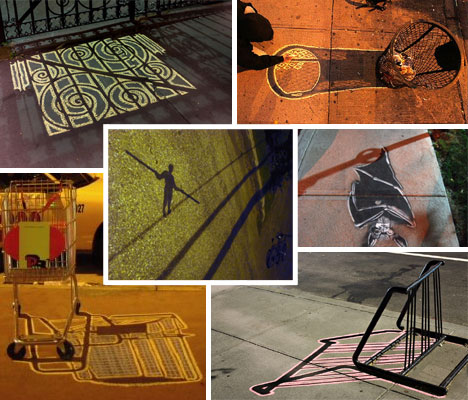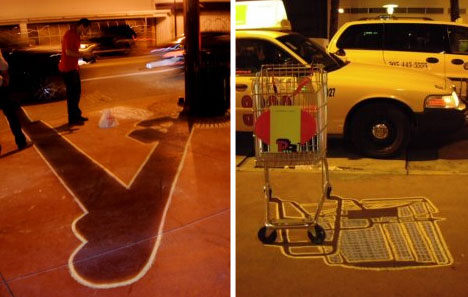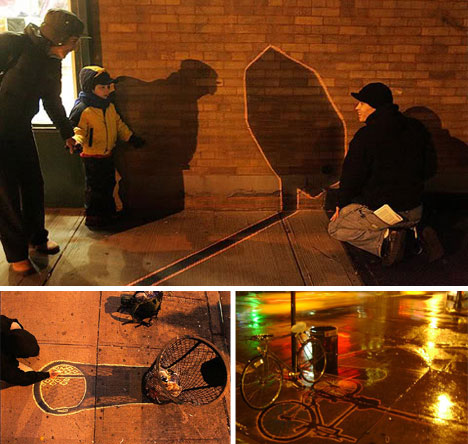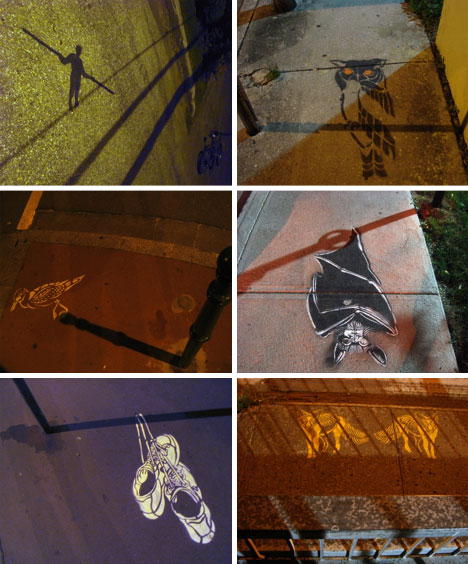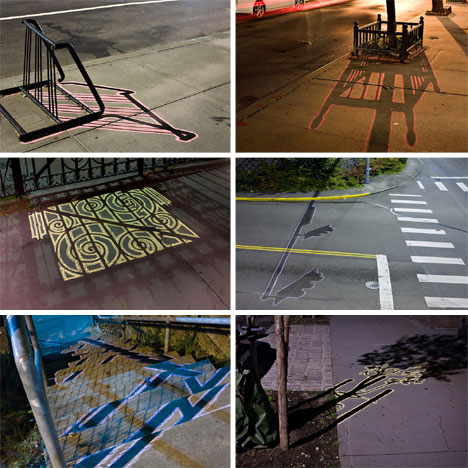In an urban environment, it seems that nearly everything is fleeting. Nothing – not even the tall buildings or long-standing sidewalks – is immune to change. Urban art that aims to make the most fleeting parts of the urban landscape inspires us to grab onto the instant and enjoy the momentary beauty found in the temporary parts of our urban life.
(images via: ArtMostFierce)
Shadow art has been a mainstay of the urban artist for many years. Although there are different takes on the idea, the most common way to catch the shadows seems to be to outline them on the sidewalk. When the light hits the shadow-casting object from precisely the right angle, observers see the shadow line up perfectly with the outline.
(images via: Sweet Station, Ellis Gallagher)
Most urban shadow art is just as transient as the shadows themselves. Chalk makes a big visual impression but quickly fades with rain or with time. Brooklyn artist Ellis Gallagher‘s work usually consists of chalk silhouettes drawn with child-like enthusiasm on New York sidewalks.
(images via: Roadsworth)
Other artists, however, choose to play with shadows in a different way. Canadian artist/activist Roadsworth uses night shadows as props for sidewalk paintings: a telephone pole shadow becomes an ivy stalk or a branch upon which birds perch. The shadow of a fence becomes a cage for wild animals. Overhead power lines are transformed into a tightrope for a brave shadowy man.
(images via: Michael Neff)
For artists like Michael Neff, the art is both in the moment and more permanent through photography. Neff traces shadows on the ground with chalk, then photographs his urban interventions. While both parts of the work – the impermanent drawing and the longer-lasting digital record of it – are important to the creative process, it is hearing that someone has seen one of his drawings in the wild that really thrills Neff.
